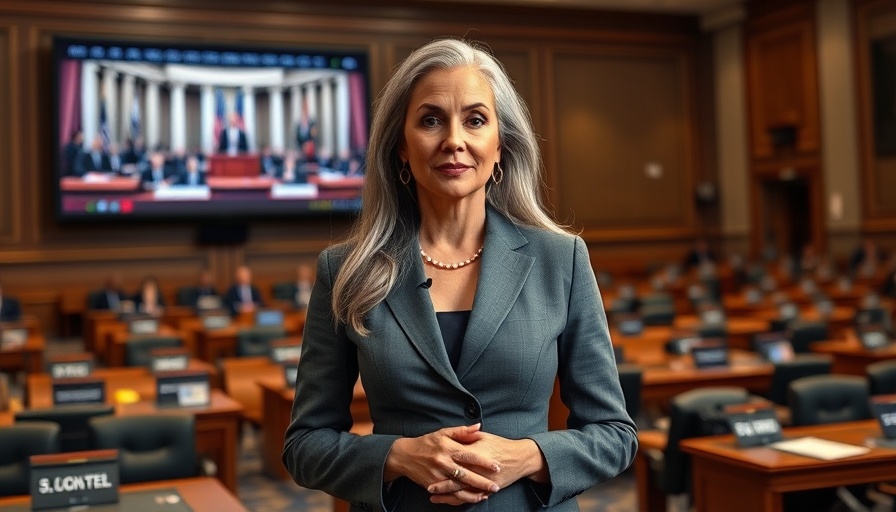
Political Turmoil Disrupts CDC Leadership: A Closer Look
The recent firing of Susan Monarez from her position as director of the Centers for Disease Control and Prevention (CDC) has not only raised eyebrows but also shaken the very ground on which public health policy stands in the United States. As political tensions escalate, insiders reveal that this move represents the culmination of growing frustrations regarding governmental interference in health agencies.
Understanding the Context of the Firing
Monarez's termination by the White House was positioned as a necessary realignment with President Trump’s agenda, highlighting a disconcerting trend where scientific leadership is often sacrificed at the altar of political ambition. Dr. Debra Houry, a deputy director at the CDC, indicated that Monarez’s departure signified the loss of crucial scientific oversight in the agency's operations. This situation echoes broader concerns regarding how political motivations can overshadow scientific integrity, endangering public trust and health outcomes.
The Implications for Public Health
According to multiple CDC insiders, Monarez's firing was a pivotal moment, showcasing an uncomfortable reality: political meddling can have profound effects on public health policy and infrastructure. With the agency often at the forefront of addressing health crises—from the COVID-19 pandemic to vaccination strategies—such disruptions may lead to inconsistent health messaging and diminished impact on disease prevention.
The Consequences of Political Meddling
Political manipulation at the CDC raises important questions about the agency's future role and effectiveness in ensuring public health safety. Experts, including former CDC acting director Dr. Richard Besser, assert that for the agency to operate effectively, it must prioritize scientific judgment above all. The integrity of public health messaging hinges on these foundations, and any deviation can lead to disastrous outcomes, especially during ongoing health emergencies.
Reflections on Governance and Science
The discontent among CDC officials highlights a larger trend in American governance: a growing disconnect between health policies and scientific evidence. With mounting skepticism regarding governmental motivations, it's essential for both officials and the public to reconsider how health decisions are made. This is particularly relevant as we navigate crucial health discussions in an age of misinformation.
Community Voices: What This Means for Us
The impacts of CDC leadership decisions resonate in local communities like those in Davenport, Polk County, and Central Florida. Homeowners and renters alike depend on reliable health information for their wellbeing. As political uncertainty looms, community members must engage in dialogues about health policies and their implications on local and national levels. Having a voice in these discussions ensures that public health remains a priority over political maneuvers.
Looking Ahead: Restoring Trust in Public Health
As we confront potential policy changes, it is crucial for communities to advocate for transparency and scientific integrity within health agencies. Engagement can take various forms, from calling local officials to ensuring that scientific leaders are supported above partisan interests. Together, we can foster an environment where public health takes precedence over political agendas, ensuring that vital health decisions are guided by scientific evidence and community needs.
Conclusion: Standing Up for Public Health
The recent events surrounding the CDC highlight the intersection of politics and public health, revealing a pressing need for community involvement and advocacy. As citizens, we must navigate these complexities together, supporting leaders who prioritize science and health over politics. Let's engage with our local government, ask questions, demand transparency, and hold public health institutions accountable for our collective wellbeing.
 Add Row
Add Row  Add
Add 




Write A Comment